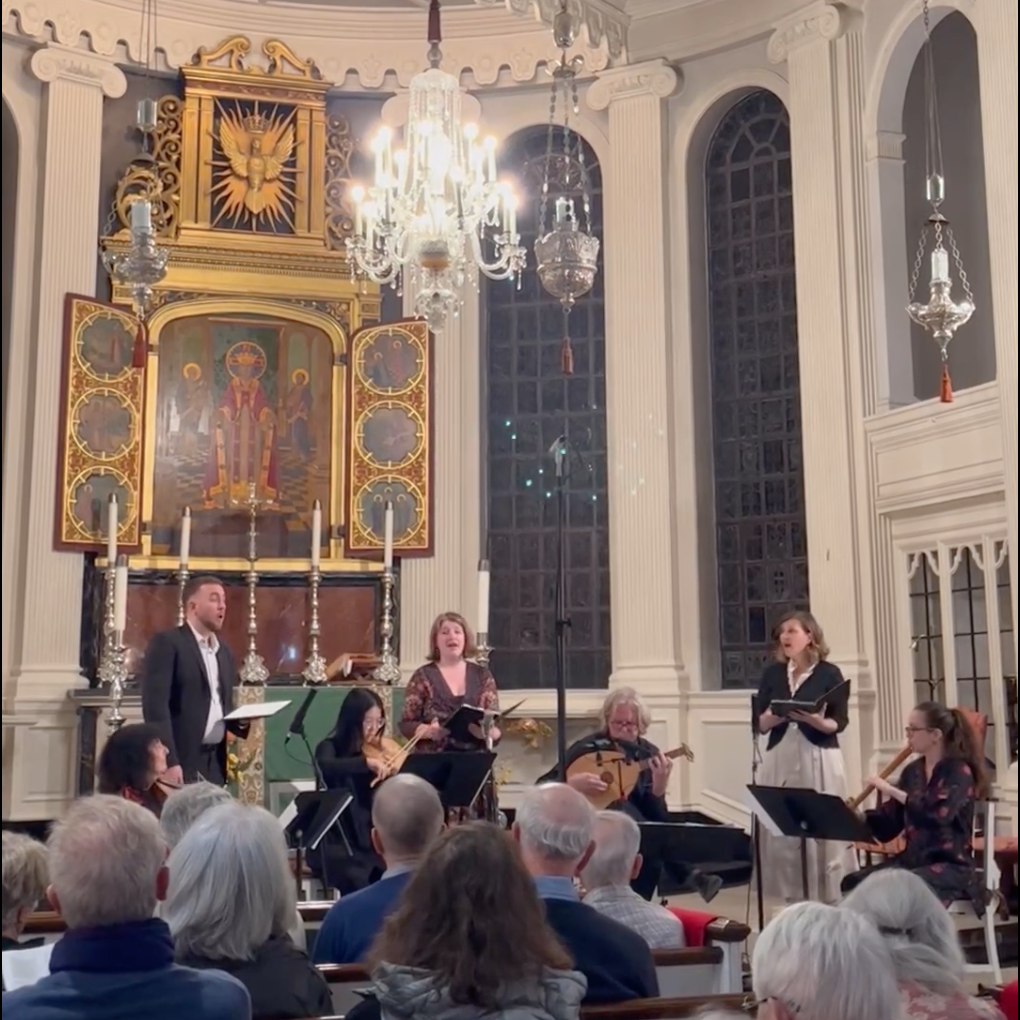TENET seamlessly bridges the centuries in music of fate
In classical music, it often seems that the further back in time one goes, the more immediate and relevant the music becomes. Pushing post the baroque into truly early music, one finds the accents different but the sensations like those of our everyday lives.
That was the feeling at Corpus Christi church Sunday afternoon, for the latest Music Before 1800 concert. A mixed vocal and instrumental ensemble from TENET Vocal Artists played a mix of music from the 14th and 15th Centuries that was integrated around the experience of luck, or chance, or fate. Whatever one calls it, TENET titled the program “The Lady Fortune,” and it was as fresh as pop radio.
In the context of its era, that’s what this was; songs and poetry about (mis)fortune are as eternal in human cultures as the vagaries of life themselves. This concert brought together vocal and instrumental music from Guillaume de Machaut, Guillaume Dufay, Philippe de Vitry, the lesser-known Robertus de Anglia and Francesco Landini, and the inevitable Anonymous. More than the music, though, this was also about the texts, verses in Latin and earlier forms of English and French about the comforts and heartaches courtesy of Lady Fortune.
The performance opened with the anonymous English song, “The Levedy Fortune,” which warmed up the delicate loveliness of soprano Jolie Greenleaf, mezzo Elisa Sutherland, and tenor James Reese, followed with instrumental music by De Vitry and unknown composers. The quartet of vielle players Shira Kammen and Donbgmyung Ahn, flutist and bagpiper Priscilla Herreid, and multi-instrumentalist (primarily percussion) Grant Herreid had an ideal sound, light but colorful. They played the spry rhythms of this musical style so that everything sounded danceable, not just the “Estampie: In Pro” from a forgotten composer.
TENET combined the music into several short sets, played with quick transitions in between individual pieces. This had the great effect ensuring the directness and earthiness of all the music came through, whether it was the teasing, comical dialogue of the anonymous “Douce dame débonaire”—sample: “I have a great desire to please you / That doesn’t interest me”—or music that set text from Boethius’ Consolation of Philosophy. For that, Kammen (who was guest music director), took a passage bemoaning how “the pride of fickle fortune spareth none” and set it, in Latin, to Machaut’s “virelai Moult sui.” This was ingenious and also emphasized the gorgeous, creative harmonies in Machaut’s music, and the minor miracle of how he could do so much with mostly two lines.
That struck one intuitively as, in today’s terms, the attraction of the pop song element. Long before classical music became a complex, abstract compositional idea, the great composers were making secular songs and dance tunes. That’s the pleasure that TENET delivered, even in modern form. Kammen also set passages from the Carmina Burana text to her own music, which followed Medieval form but with contemporary details of harmony and rhythm that immediately brought to mind some of the great progressive rock groups—“Fortune Plango Vulnera” popped into bright major chords, and “O Fortuna velut luna” had a rolling septuple meter.
The singers excelled in intertwining melodic and harmonic lines; one felt the vibrant depths of dissonances sliding against each other and quick movements from minor to major and back. Each individual piece flowed into the next in this format, like Medieval radio. This was nicely engineered to a peak of beauty and complexity with Dufay’s “Par droit je puis”—about the woes of misfortune—and Landini’s rueful “De Dimmi Tu.”
The essence of the afternoon was sealed by the built-in encore, this from the 18th century: Robert Burns’ “O Fickle Fortune,” one of the many poems he set to folk tunes. The penultimate verse resonated with the feeling of the whole concert: “I once was by Fortune carest: / I once could relieve the distrest: / Now life’s poor support, hardly earned / My fate will scarce bestow: / And it’s O, fickle Fortune, O!”
Music Before 1800 presents “Winter Wassail” at Riverside Church, 4 p.m. December 17. mb1800.org
